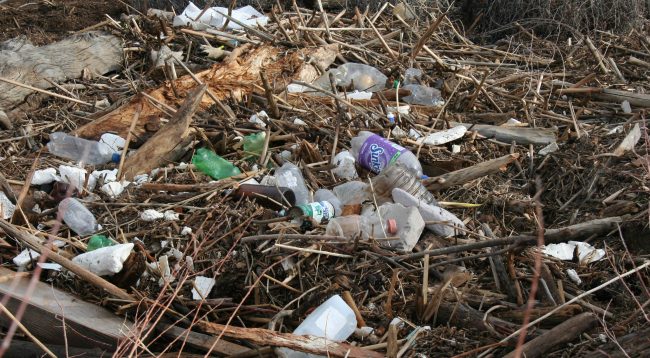
If you’ve ever experienced a sudden toothache, broken tooth, or any other dental issue that requires immediate attention, you understand the importance of knowing how to navigate urgent dental care. Dental emergencies can occur unexpectedly, causing pain and discomfort, and it’s crucial to be prepared to address them effectively. If you’re in need of urgent dental care, consider visiting a Trusted North Palm Beach Dentist for professional and reliable treatment.
Types of Urgent Dental Care
Before delving into what you need to know about urgent dental care, it’s essential to differentiate between dental emergencies and urgent dental issues. While dental emergencies require immediate medical attention to save a tooth, stop bleeding, or alleviate severe pain, urgent dental problems are serious issues that need prompt treatment to prevent further complications.
Recognizing Urgent Dental Issues
Recognizing the signs of urgent dental problems is key to seeking timely treatment. Symptoms such as severe tooth pain, swelling, bleeding gums, or a loose tooth indicate the need for urgent dental care. Ignoring these signs can lead to more significant dental issues and even compromise your overall health.
Preparing for Urgent Dental Situations
Being prepared for dental emergencies can make a significant difference in how effectively you can handle them. It’s advisable to have an emergency dental kit at home, including items like gauze, pain relievers, and the contact information of your dentist or an emergency dental clinic. Familiarize yourself with your dental provider’s emergency protocols to know what to do in case of an urgent situation.
What to Do in Case of Dental Emergency
In the event of a dental emergency, it’s essential to remain calm and take appropriate action. If you experience severe pain, bleeding, or a knocked-out tooth, take immediate steps to alleviate discomfort and preserve your dental health. Contact your dentist or seek emergency dental care promptly to receive the necessary treatment.
Urgent Dental Care Procedures
Urgent dental care procedures may vary depending on the nature of the issue. Common treatments include root canals, dental fillings, tooth extractions, and emergency repairs for damaged teeth. Your dentist will assess your condition and recommend the most suitable treatment to address your urgent dental needs.
Costs and Insurance Coverage
Understanding the costs associated with urgent dental care and your insurance coverage is crucial for managing expenses. While some dental insurance plans cover emergency treatments, others may have limitations or require pre-authorization. It’s essential to review your insurance policy and be aware of any out-of-pocket expenses you may incur for urgent dental care.
Preventive Measures
Prevention is key to avoiding dental emergencies whenever possible. Maintaining good oral hygiene habits, such as brushing and flossing regularly, and scheduling routine dental check-ups can help prevent dental issues from escalating into emergencies. Additionally, wearing mouthguards during sports activities and avoiding chewing hard objects can reduce the risk of dental injuries.
Special Considerations
Special considerations may apply when dealing with urgent dental care for children, elderly individuals, or individuals with specific medical conditions. Pediatric dentists are trained to handle dental emergencies in children, while elderly individuals may require extra care due to age-related dental issues. If you have a dental emergency while traveling, seek assistance from local dental professionals or contact your regular dentist for guidance.
The Role of Tele-dentistry
Tele-dentistry has emerged as a convenient option for accessing dental care remotely, including urgent consultations. Virtual dental visits allow patients to receive timely advice from dental professionals without leaving their homes. While tele-dentistry can be beneficial for certain urgent dental issues, it’s important to recognize its limitations and seek in-person care when necessary.
Community Resources and Support
For individuals without dental insurance or facing financial constraints, several community resources and support services are available to provide assistance for urgent dental needs. Local health departments, non-profit organizations, and free clinics may offer reduced-cost or sliding-scale fee dental services. Additionally, hotlines and online platforms can connect individuals with dental professionals who volunteer their services or offer discounted rates.
Maintaining Oral Health Post-Emergency
After receiving urgent dental treatment, it’s essential to follow your dentist’s recommendations for post-emergency care. This may include taking prescribed medications, attending follow-up appointments, and practicing good oral hygiene to prevent future dental issues. By maintaining regular dental check-ups and adopting preventive measures, you can minimize the risk of experiencing further dental emergencies.
Common Myths and Misconceptions
There are several myths and misconceptions surrounding urgent dental care that may influence how people respond to dental emergencies. It’s essential to debunk these myths and provide accurate information to encourage prompt action when faced with urgent dental issues. For example, waiting to see if the pain subsides on its own can worsen the condition and lead to more extensive treatment.
Patient Testimonials
Real-life experiences of individuals who have navigated urgent dental situations can provide valuable insights into the importance of prompt dental care. Hearing how others have successfully managed dental emergencies and received timely treatment can encourage individuals to prioritize their oral health and seek help when needed.
Conclusion
Navigating urgent dental care requires awareness, preparedness, and prompt action. By understanding the signs of urgent dental issues, preparing for emergencies, and knowing how to access timely treatment, you can effectively manage dental emergencies and preserve your dental health. Remember to prioritize preventive measures, stay informed about your insurance coverage, and seek professional help whenever necessary to maintain optimal oral health.


